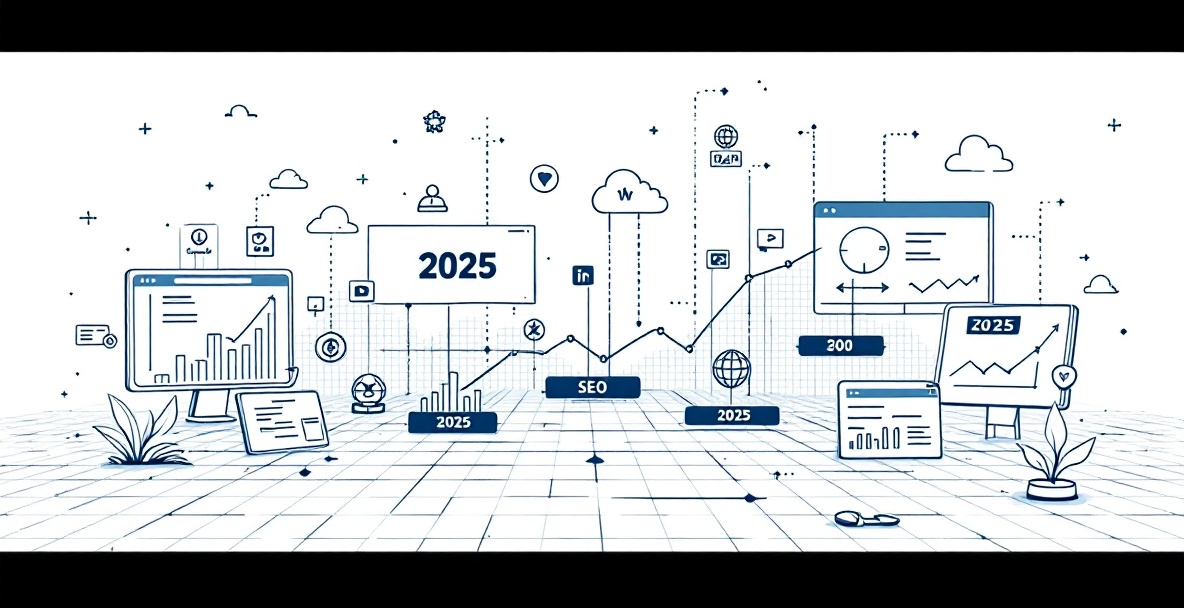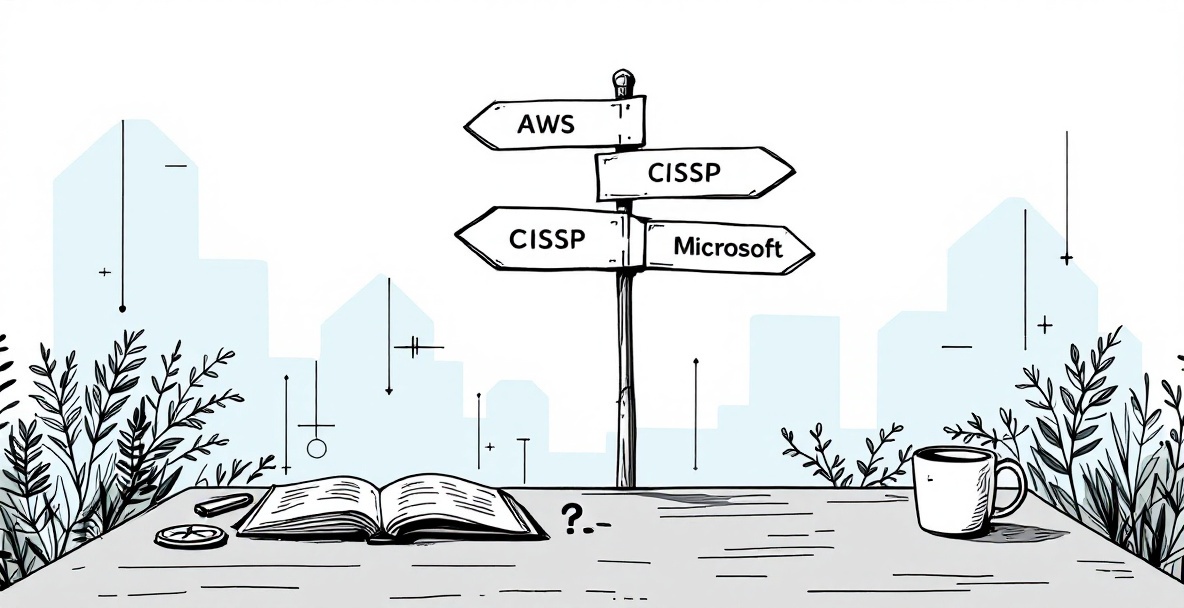As digital marketing continues to evolve at breakneck speed, professionals face an overwhelming array of certification options promising career advancement and skill validation. With limited time and resources, identifying truly valuable credentials has become increasingly challenging. The certification landscape for 2025 presents a complex decision matrix where some programs deliver substantial ROI while others offer little more than a certificate. This guide cuts through the noise to help you identify which digital marketing certifications genuinely deserve your investment based on employer demands, industry trends, and practical skill development.
The Digital Marketing Certification Landscape in 2025

Current State of Digital Marketing Education
Digital marketing education has undergone substantial transformation since 2023, with certification programs adapting to rapid technological advancements and shifting employer expectations. The market has become saturated with offerings ranging from platform-specific certifications to comprehensive professional credentials. According to the Digital Marketing Institute's 2024 Industry Report, certification providers increased by 37% between 2023 and 2025, creating both opportunity and confusion for professionals seeking meaningful credentials.
The most significant shift has been toward specialized, technical certifications that demonstrate mastery in specific domains rather than general digital marketing knowledge. Platform-agnostic programs focusing on transferable skills have gained prominence over platform-specific credentials, though giants like Google and Meta continue to maintain respected certification ecosystems. Micro-credentials and "stackable" certification pathways have emerged as popular formats, allowing professionals to build customized skill portfolios.
Educational delivery has also evolved, with advanced simulation technologies, AI-guided personalized learning paths, and hybrid formats becoming standard features of premium certification programs. This evolution reflects the industry's recognition that theoretical knowledge alone is insufficient for today's marketing environments.
Key Skills Employers Seek in 2025
Employer requirements have crystallized around specific technical and strategic capabilities that directly impact business outcomes. According to LinkedIn's 2025 Digital Marketing Skills Index, data analysis and interpretation skills top employer demand lists, with 83% of hiring managers citing these as essential qualifications. Advanced proficiency in marketing automation, customer journey optimization, and cross-channel attribution modeling follows closely behind.
Technical SEO expertise has maintained its position as a premium skill set, with particular emphasis on Core Web Vitals optimization, mobile-first indexing strategies, and schema implementation. The ability to leverage AI tools for content creation while maintaining E-E-A-T principles has emerged as a distinctly valuable capability. Perhaps most notably, employers increasingly seek marketing professionals who can bridge technical understanding with strategic business application.
Soft skills haven't lost relevance – adaptability, critical thinking, and cross-functional collaboration now complement technical expertise in employer wish lists. Certifications that effectively validate both technical competence and strategic application capabilities offer the greatest value proposition for career advancement in 2025.
Technical SEO and Analytics Certifications

Advanced SEO Certification Programs
The technical SEO certification landscape has matured significantly, with programs now differentiating themselves through depth of technical coverage and practical application methodologies. The Google Search Central Certification, launched in late 2024, has quickly established itself as an industry benchmark, offering comprehensive validation of technical SEO implementation capabilities across Google's evolving search ecosystem.
Moz's Advanced Technical SEO Certification provides particularly strong coverage of JavaScript rendering challenges, international SEO implementation, and structured data optimization – areas consistently identified in technical SEO audit checklists as common failure points. The program's hands-on troubleshooting simulations mirror real-world implementation scenarios, making it especially relevant for professionals working with complex technical environments.
For those focused on enterprise environments, the SEMrush Technical SEO Certification offers specialized modules addressing crawl budget management, site architecture optimization for large domains, and enterprise-level implementation challenges. Its rigorous examination format requires demonstrated proficiency in resolving complex technical issues rather than simply identifying them.
"Technical SEO certifications should validate both diagnostic capabilities and implementation skills," explains Mark Johnson, Senior Technical SEO Specialist at SEO Tuts. "Look for programs that include practical application components such as troubleshooting scenarios and implementation projects rather than purely theoretical assessments."
Analytics and Performance Measurement
Analytics certifications have evolved beyond basic data collection toward advanced interpretation, actionable insights, and cross-platform measurement strategies. Google Analytics 4 Certification remains foundational but now includes expanded modules on predictive analytics, customer lifetime value modeling, and cookieless measurement strategies – reflecting the platform's enhanced capabilities.
The Digital Analytics Association's Certified Web Analyst program provides platform-agnostic validation of advanced measurement competencies, including attribution modeling, experimental design, and data visualization techniques. Its particular strength lies in validating professionals' abilities to derive strategic insights from complex datasets and communicate those insights effectively to stakeholders.
For those focused on conversion optimization, the ConversionXL CRO Certification combines rigorous analytics interpretation with behavior analysis frameworks and experiment design methodologies. The program's emphasis on statistical significance and test validity makes it particularly valuable for data-driven marketers.
More specialized options include Amplitude's Product Analytics Certification for product-led growth professionals and Mixpanel's Behavioral Analytics Certification for those focused on customer journey optimization. These targeted credentials validate domain-specific analytics expertise that directly impacts business outcomes.
Content and Strategy-Focused Certifications

Content Marketing and Strategy
Content strategy certifications have evolved to address the increasingly complex challenges of content creation, distribution, and measurement in multi-channel environments. The Content Marketing Institute's Advanced Strategy Certification stands out for its comprehensive coverage of content strategy development, implementation frameworks, and ROI measurement methodologies. The program's emphasis on developing data-informed content ecosystems rather than isolated pieces makes it particularly relevant for strategic roles.
HubSpot's Content Marketing Certification has maintained its relevance through significant curriculum updates focusing on content personalization at scale, AI-assisted content creation governance, and multi-format distribution strategies. Its strength lies in balancing fundamental principles with practical implementation techniques that can be immediately applied.
For those seeking deeper specialization, the Contently Content Strategy Certification offers focused modules on editorial calendar development, content team management, and creative resource optimization. The program's practical focus on operational content strategy implementation makes it valuable for professionals directly responsible for content production workflows.
"Effective content strategy certifications should validate your ability to develop content that serves both audience needs and business objectives," notes Sarah Chen, Content Director at SEO Tuts. "Look for programs that emphasize measurement frameworks and distribution strategy alongside creation techniques."
E-commerce and Conversion Optimization
E-commerce optimization certifications have gained substantial traction as digital commerce continues its expansion across industries. The Shopify Partner Certification Program has established itself as a leading credential for e-commerce specialists, offering comprehensive validation of store optimization capabilities, conversion funnel development, and platform-specific implementation techniques.
For platform-agnostic expertise, the OMCP E-commerce Optimization Certification provides thorough coverage of e-commerce optimization strategies guide principles applicable across Shopify, WooCommerce, Magento, and other major platforms. Its strength lies in validating professionals' abilities to develop and implement comprehensive optimization strategies rather than platform-specific implementations.
The CXL Conversion Optimization certification maintains its position as the gold standard for conversion specialists, with its rigorous focus on behavioral psychology, experiment design, and data-driven optimization methodologies. The program's emphasis on statistical validity and test interpretation makes it particularly valuable for professionals seeking to implement sophisticated optimization programs.
More specialized options include BigCommerce's Enterprise Optimization Certification for large-scale implementations and Klevu's E-commerce Search Optimization certification for professionals focused on search functionality within commerce environments.
Specialized Digital Marketing Certifications

Local and Mobile Marketing
Local marketing certifications have gained significant prominence as businesses increasingly recognize the importance of location-based strategies. The BrightLocal Local Marketing Certification offers comprehensive coverage of local SEO ranking factors, Google Business Profile optimization, and location-based campaign development. Its particular strength lies in validating professionals' abilities to implement cohesive local marketing strategies across multiple platforms and touchpoints.
For mobile-specific expertise, the App Growth Summit's Mobile Marketing Certification provides specialized validation of app store optimization capabilities, mobile user acquisition strategies, and retention campaign development. The program's emphasis on mobile-specific metrics and measurement frameworks makes it particularly valuable for professionals working in app-based businesses.
More specialized credentials include Uberall's Location Marketing Certification for multi-location businesses and Yelp's Local Business Optimization program for service-based businesses. These targeted certifications validate domain-specific expertise that directly impacts local visibility and engagement.
"Local marketing certifications should validate proficiency with platform-specific implementations while maintaining focus on holistic strategy," explains David Wong, Local SEO Specialist at SEO Tuts. "The most valuable programs emphasize local customer journey mapping and cross-platform measurement capabilities."
Advanced Link Building and Authority
Authority building certifications have evolved significantly to address the increasingly sophisticated requirements of modern link development. The Authority Builders Pro Certification provides comprehensive validation of outreach strategy development, relationship management techniques, and content-driven link acquisition methods. Its particular strength lies in emphasizing sustainable, white-hat approaches rather than quick-win tactics.
For professionals seeking specialized expertise in digital PR for link acquisition, the Moz Advanced Link Building certification offers focused modules on newsworthy content development, journalist relationship management, and link-worthy asset creation. The program's emphasis on integrating PR principles with SEO objectives makes it particularly valuable for content marketers.
More specialized options include Pitchbox's Outreach Specialist Certification for outreach-focused professionals and Help a Reporter Out's Media Relations Certification for those concentrating on earned media opportunities. These targeted credentials validate domain-specific expertise that directly impacts authority development efforts.
The most valuable authority building digital marketing certifications emphasize both technical and relationship aspects of link development while maintaining strict adherence to search engine guidelines and ethical standards. Programs that focus exclusively on tactical implementation without strategic context offer limited long-term value.
Making the Right Certification Choice
ROI Assessment Framework
Selecting the right certification requires a structured evaluation approach that balances multiple factors against your specific career objectives. Begin by establishing a clear certification investment framework that considers three primary dimensions: credential recognition, skill relevance, and implementation opportunity.
Credential recognition extends beyond simple brand awareness to industry acceptance and employer validation. Resources like LinkedIn's Certification Impact Report and Glassdoor's Industry Certification Analysis provide quantitative insights into how specific credentials affect hiring decisions and compensation discussions. Cross-reference these resources with job postings in your target role or industry to identify which certifications appear consistently in preferred qualifications.
Skill relevance assessment requires honest evaluation of your current capabilities against target position requirements. Perform a gap analysis comparing your existing skill set with the competencies addressed by potential certification programs. Prioritize certifications that address critical gaps while building upon your established strengths, creating a complementary skill portfolio rather than a collection of disconnected credentials.
Implementation opportunity represents perhaps the most overlooked aspect of certification ROI. The value of any new skill depends largely on your ability to apply it in meaningful contexts. Assess whether your current or target role will provide genuine opportunities to implement and refine the skills developed through certification. Without application contexts, even the most prestigious credentials rapidly depreciate in practical value.
Action Plan and Next Steps
Developing an effective certification strategy requires a systematic approach aligned with your professional objectives. Begin by documenting your career goals for the next 12-24 months, including specific role targets, desired responsibility expansions, or business outcomes for self-employed professionals. This critical step creates the foundation for all subsequent certification decisions.
Map your existing skill portfolio against your identified objectives, noting significant capability gaps that limit progress toward your goals. Prioritize these gaps based on their impact on goal achievement rather than perceived difficulty or popularity. This prioritization framework helps navigate the overwhelming certification landscape by focusing on credentials that directly advance your professional trajectory.
Conduct thorough research on certification options that address your priority skill gaps. Beyond program websites, investigate graduate experiences through platforms like LinkedIn, Reddit's r/digitalmarketing community, and industry forums. Pay particular attention to comments regarding practical application value and recognition by employers or clients in your specific industry context.
"The most valuable certifications create immediate application opportunities," advises Michael Zhang, Learning Development Director at SEO Tuts. "Seek programs that include implementation projects aligned with your current responsibilities to maximize both learning retention and visible impact."
Finally, develop a realistic certification timeline that accounts for preparation requirements, program duration, and post-certification implementation planning. Most professionals benefit from focusing on 1-2 high-value certifications annually rather than accumulating multiple credentials without mastery. This focused approach maximizes both learning depth and credential impact while preventing certification fatigue.
The digital marketing certification landscape of 2025 rewards strategic selection over credential accumulation. By applying a rigorous evaluation framework to your certification decisions, you can identify programs that genuinely advance your career objectives while avoiding investments in rapidly depreciating credentials.
Ready to develop the advanced SEO expertise that today's employers demand? SEO Tuts offers comprehensive learning resources covering technical SEO fundamentals, authority building strategies, and performance measurement frameworks – perfect companions to your certification journey. Visit us today to accelerate your professional development with practical, implementation-focused guidance from industry experts.
Leave a Reply